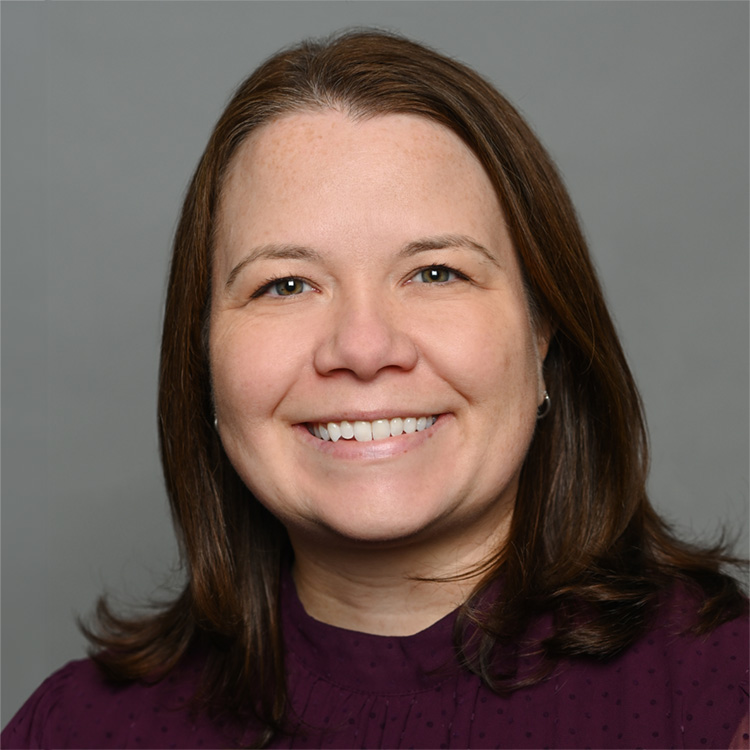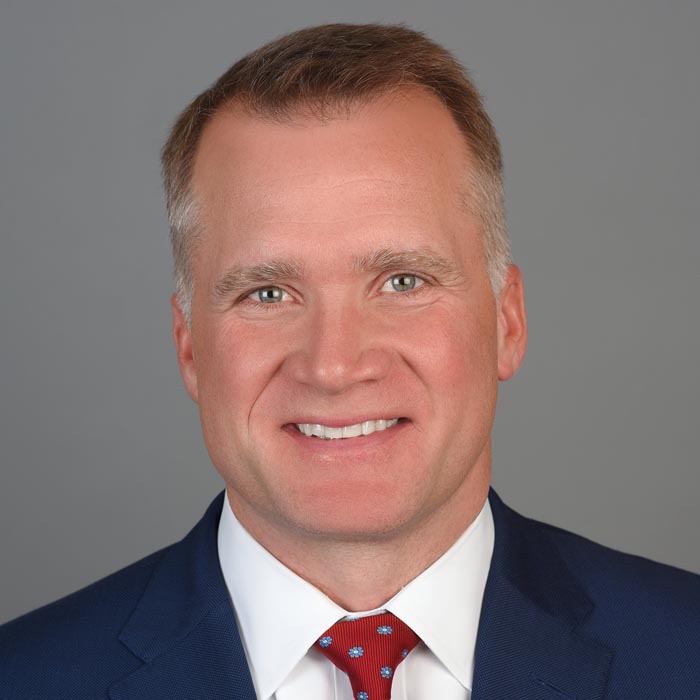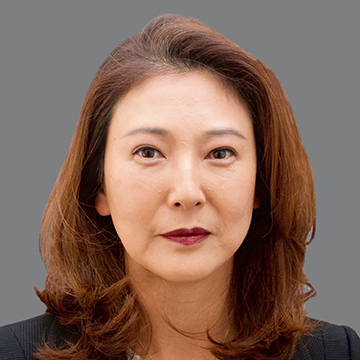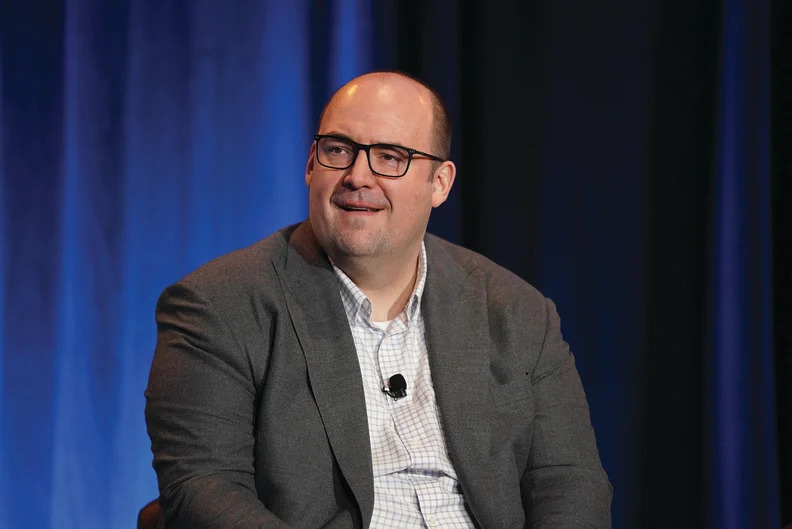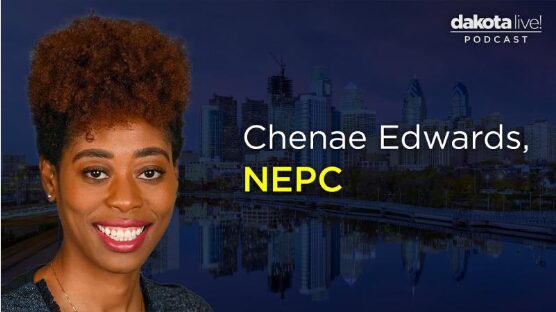The Bond Buyer: Munis Weaker but Outperform UST Selloff After GDP Report
Phillip Nelson was quoted in a recent article by The Bond Buyer to discuss his prediction on inflation hikes through the remainder of 2023. View the article on The Bond Buyer’s site here.
Muni yields rose Thursday, following and outperforming a U.S. Treasury sell-off on the heels of strong-than-expected economic data. Equities ended down.
Thursday’s “economic data offers the latest evidence that the U.S. economy is weathering the fastest rate hikes in a generation without much damage to the major gear-works of the economy,” said Wells Fargo Securities senior economist Tim Quinlan and economist Shannon Seery.
. . .
Depending on inflation levels and price changes, Phil Nelson, head of asset allocation at investment consulting firm NEPC could see one or two more hikes by the end of this year.
“Nothing has changed in terms of how the Fed balances the set of risks, and they want to see data confirmation,” he said.
FIN News: NEPC Names New Foundation & Endowment Team Leader
Kristine Pelletier was recently announced as NEPC’s new Endowments & Foundations team leader. View the article on FIN News’ site here.
The firm recently named a partner as the new team leader for its foundation and endowment practice.
. . .
Pelletier is tasked with finding investment strategies that achieve clients’ multiple objectives and is responsible for strategic planning, client service and team development, according to the spokesperson.
She also leads research efforts for NEPC’s philanthropic clients and works to develop investment policies, conduct asset allocation studies, provide investment manager due diligence and research projects, according to her biography on the firm’s website.
Pelletier, who began in the role July 1, has served as a senior member of the Boston-based firm’s endowment and foundation practice and will continue in her role as partner, co-head of its impact investing committee and member of its DEI govern board, according to the spokesperson.
Pensions & Investments: Demand Growing, but Searching and Hiring Not Necessarily Easier
NEPC’s Steve Charlton was quoted in a recent Pensions & Investments article which focuses on the recent popularity of OCIOs and the challenges institutions are now facing logistically when transitioning from their current solution to an OCIO. View the article on Pensions & Investments’ site here.
The growing popularity of OCIOs is making it easier for asset owners to access the right providers, but sources are split over whether the search and hiring process is getting easier for institutions.
. . .
TIFF Advisory, a subsidiary of TIFF Investment Management, had $8.3 billion in outsourced AUM as of March 31, up 6.4% from a year prior.
But Steve Charlton, Boston-based head of client solutions and partner at NEPC LLC, countered that the hiring process is not getting easier.
“The growth of third-party evaluation firms as the stewards of OCIO searches has required the OCIO industry to invest in additional resources and capabilities to answer more in-depth questions coming from TPEs,” he said in an email. “TPEs generally take a deeper dive during the due-diligence process relative to asset owner-driven RFPs, so the hiring process is not getting easier in the OCIO space.”
NEPC reported $61.5 billion in outsourced AUM as of March 31, slightly below its $61.7 billion figure a year prior.
Click here to continue reading the full Pensions & Investments article.
Pensions & Investments: Participant Interaction Minimizes Losses
NEPC’s Emma O’Brien was quoted in a recent Pensions & Investments article which focuses on Defined Contribution trends despite last year’s market meltdown. View the article on Pensions & Investments’ site here.
Despite last year’s equity and fixed-income rout, DC participants and sponsors take long-term view.
. . .
Last year’s market meltdown didn’t derail certain DC trends and didn’t trigger new ones, said Emma O’Brien, the Boston-based senior consultant for the NEPC LLC defined contribution team.
Clients maintained their long-term perspective, Ms. O’Brien said, adding that the industry doesn’t make quick changes.
“What will drive changes is target-date funds” at the expense of core menu options, she said.
. . .
Ms. O’Brien said there were “no significant trends in outflows” from DC plans last year. In 2023, some clients will review their investment structure, a typical client response.
“We’ve heard limited feedback from plan sponsors that participants are asking for change in lineups, and that’s driven by the fact that our clients generally have well-structured investment menus that offer core menu options that span the risk spectrum,” she said. “Participants have the option to be conservative, aggressive, or somewhere in between based on their own goals or their market views.”
Click here to continue reading the full Pensions & Investments article.
FIN News: NEPC Names New Public Funds Practice Head
Margaret Belmondo was recently announced as NEPC’s new Public Funds practice head. View the article on FIN News’ site here.
New public funds practice head first joined the firm in 2016 and was named partner in 2020.
. . .
Margaret Belmondo, partner at investment consultant NEPC, will head the firm’s public funds practice effective July 1, according to live video of today’s Howard County (Md.) Retirement Plan board meeting.
“We promised you, we are not changing [consultants]. I know when you make these types of announcements these are questions we get and the answer is no,” Kevin Leonard, partner and current head of the public funds practice, told the board.
FIN News: 5 Questions With NEPC Senior Consultant Rose Dean
Rose Dean of NEPC was recently interviewed by FIN News for their “5 Questions” series. She shared insights on her move to NEPC, her previous experiences, her investment outlook, and more. View the interview on FIN News’ site here.
Rose Dean joined investment consulting firm NEPC as a senior consultant this April after previously serving as a managing director with Wilshire.
. . .
When asked about her favorite part about her new role at NEPC, Rose answered, “I think any job is about people. I have met a lot of great people at NEPC and having come from a smaller firm, it is exciting to join a bigger team and learn from everyone’s experiences. It is also exciting to see the extent of resources available to consultants here at NEPC. It makes my role that much easier and allows me to be creative in providing solutions to clients.
Emerging Manager Monthly: NEPC Enhances DEI Rating System As Diverse Manager Usage Grows
NEPC’s Nedelina Petkova was featured in the June issue of Emerging Manager Monthly which focuses on our new Diversity, Equity, and Inclusion rating system for investment managers. View the article on Emerging Manager Monthly’s site here.
Investment consultant NEPC has incorporated a new Diversity, Equity, and Inclusion rating system for investment managers as part of its efforts to move the needle.
. . .
“We think [this is] another way for us to push the industry forward and really fundamentally believe that diversity of the investment teams allows for better decision-making and outcomes… that’s exactly what we think our role is as consultants and as investors,” said Nina Petkova.
. . .
“This isn’t just an exercise in us looking at the demographic of the employee base and assigning a score. We are doing a deep dive on evaluating DEI efforts at our managers, both on a firm level and also on a strategy level. We’re focusing on diversity stats, both only across the entire employee base through EEO1s, but also on the leadership team and the investment teams. We’re also measuring the firms’ progress in evaluating if they have the right mechanisms to measure their own progress. We’re assessing the resources that they have at the firm dedicated to diversity efforts. And lastly, we’re looking at their engagement, both inside the organization and outside of the walls of the firm, including their diverse supplier policies and brokerage relationships. And so, like I said, I believe this will fundamentally change the way in which clients utilize DE&I to ultimately make more informed decisions,” she said.
Click here to continue reading the full Emerging Manager Monthly article.
The Wall Street Journal: Treasury Yields Rise Ahead Of Expected Fed Pause
Ahead of the conclusion of June’s Fed meeting and the release of the latest CPI report, NEPC’s Head of Asset Allocation, Phillip Nelson, spoke with The Wall Street Journal about the long-term outlook around consumer price increases and the impact that could have on treasury yields. View the article on The Wall Street Journal’s site here.
Treasury yields bounce back from early declines as the Fed is expected to keep rates unchanged tomorrow after ten consecutive increases. May consumer price data this morning supported the markets’ predominant view that the hiking cycle could take a break this month with a possible final uptick in July. BNP Paribas’ economists say in a note that “persistent stickiness in the core will keep more hawkish Fed officials committed to additional policy tightening in July.” The 10-year yield rises 0.074 percentage point to 3.838% and the two-year gains 0.104 pp to 4.694%, in both cases the highest level since early March.
. . .
The 10-year Treasury yield could move above 4%, NEPC’s Phillip Nelson says. He thinks it is going to take some time for consumer price increases to slow down to a pace the Fed finds satisfactory. Until then, policy rates will remain high, pushing Treasury yields higher as markets adjust. Nelson sees the 10-year “somewhere close to the 4% range.” For most of this year, the benchmark has traded between 3.3% and 4.1% and is at 3.8% today. “Eventually, the long end of the Treasury market has to adjust to higher inflation expectations and so we can see 10-year, 30-year start moving north of 4% and that would be appropriate.”
Click here to continue reading the full Wall Street Journal article.
Pensions & Investments: Social Security's Woes Highlight Need for Holistic Plan
NEPC’s Bill Ryan was featured in a recent Pensions & Investments article which focuses on the uncertain future of Social Security and what plan sponsors can do to prepare participants. View the article on Pensions & Investments’ site here.
Given Social Security’s uncertain future, defined contribution executives say that it’s important for plan sponsors to offer participants holistic retirement planning and encourage additional savings.
. . .
A reduction in Social Security benefits would lead to an increased strain on the defined contribution system, according to Bill Ryan, Chicago-based Partner and Head of Defined Contribution Solutions at NEPC LLC.
In the case of lower benefits, many individuals would need to rely more on their 401(k) plan for retirement income, he said. To do so means that “it’s going to put more pressure on the 401(k) balance, draw down faster, and you could see it depleting sooner,” Mr. Ryan said.
Mr. Ryan called it a “compound effect: Social Security reduces; more money comes out of the 401(k) plan (and) runs out quicker. And so, assuming returns are constant for everyone, the only way to start planning for this is to incrementally save more to backstop that.”
. . .
NEPC’s Mr. Ryan said Social Security needs to be discussed more within the retirement industry, as well, since it “tends not to be (at) the forefront of the participant communications.”
“I think Social Security should get more attention (from) consultants and plan sponsors, especially in light of the attention towards annuities,” Mr. Ryan said. “Social Security is an annuity, and it’s a lower-cost annuity. So it’d be unfortunate if that wealth management strategy was compromised.”
. . .
If Social Security benefits are reduced, “it’s not going to change a person’s need to pay their mortgage, pay their car loan, (or) pay whatever they were planning,” Mr. Ryan said. “That (loss) is going to have to come from other forms of savings like DC, and if we’re not planning for that,” it could cause people budgetary issues.
That’s why Mr. Ryan said “there should be more guidance to encourage faster escalation of savings rates or maybe tax credits for higher matches.”
. . .
Mr. Ryan said delaying the age at which someone takes Social Security is still valuable, but it’s a hard sell.
“If someone were to take it later, it puts less of a strain on the trust,” he said. “And there’s an absolutely incremental value that the participant will actually be able to get more from it, but it’s hard to make that human trade,” and give up immediate money for possible money in the future, especially given the system’s uncertain future.
Click here to continue reading the full Pensions & Investments article.
Dakota Live! Podcast: Thinking Boldly with Chenae Edwards of NEPC
NEPC’s Chenae Edwards was interviewed by Dakota Live! in their recent podcast to discuss the NEPC manager research process, how clients are maneuvering through the current market environment, and her experience in working with non-profit institutions. Listen to the podcast on Spotify or Apple Podcast.
“Chenae Edwards, Partner with NEPC, LLC shares her investment consulting experience as she discusses the NEPC manager research process, how clients are maneuvering through the current market environment, and her experience in working with non-profit institutions. NEPC is one of the industry’s largest independent, full-service investment consulting firms, serving more than 400 clients with over $1.4 trillion in assets under advisement. With over 350 employees and over 400 clients across channel, NEPC’s five distinct practices and eight regional offices make it one of the more important consultants in the industry. Learn more about what has made NEPC so successful over the years, and how Chenae and her colleagues research and select their investment management partners.”

